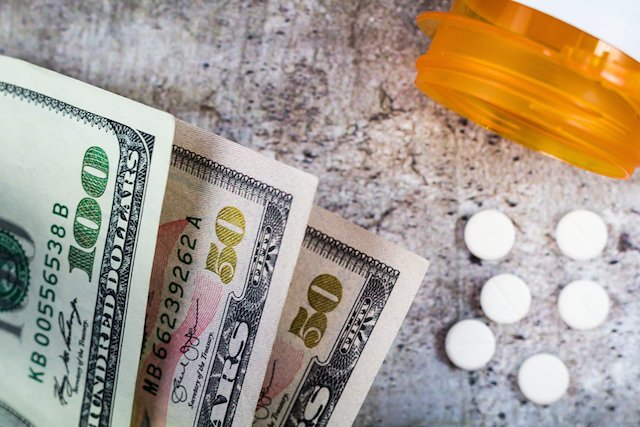Over half of adults over the age of 65 (52%) are willing to pay more each month in Medicare premiums to allow a cap on out-of-pocket prescription drug costs, according to a recent survey by the Alliance for Aging Research.
The survey shows that older adults, struggling to pay for their prescription drugs and in some cases even discontinuing use of a prescription because of the cost, would welcome legislation that would place a cap on out-of-pocket prescription drug costs.
The Morning Consult survey, commissioned by the Alliance for Aging Research, was conducted online between June 26 and July 3, 2019, among a national sample of 2,203 adults with health insurance over the age of 60. Of the respondents, 200 were adults between the ages of 60 to 64, 2,003 were Medicare beneficiaries age 65+, 1,701 had a chronic condition, and 501 did not have a chronic condition. Results from the full survey have a margin of error of plus or minus 2 percentage points.
“Our survey found that one in five older adults aged 60 and older are struggling to pay for their prescription drugs. Of those who deal with a chronic condition, nearly one in four (24%) report they have stopped taking a prescription medication because of the cost. These findings demand a policy response,” said Susan Peschin, MHS, President and CEO of the Alliance for Aging Research.
“Older adults clearly support Congress passing legislation that would place a cap or limit on Medicare Part D out-of-pocket costs, and more than half of Medicare beneficiaries are willing to pay a few extra dollars a month in Medicare premiums to help make it happen. If Congress and the Administration are serious about addressing Part D out-of-pocket drug costs, the ball is in their court.”
Other key findings of the survey include:
- Over half of seniors over the age of 65 on Medicare are satisfied with their health insurance coverage.
- Half of seniors on Medicare are concerned about being able to pay for costs not covered by Medicare.
- One in three older adults have noticed an increase in prescription drug prices over the past year.
- One in five have difficulty paying for prescription drugs.
- One in five adults have stopped taking a prescription medication as prescribed due to the cost.
- Among older adults with a chronic condition, one in four adults have stopped taking a prescription medication because of cost.
- Three in four adults are supportive of legislation that would limit out-of-pocket costs for seniors participating in Medicare Part D.
- More than half of seniors on Medicare (52%) are willing to pay a few extra dollars each month to ensure a limit on what they are paying out-of-pocket for prescription drugs.
- When asked to choose between a monthly and an annual cap, 46% support a monthly cap vs. 24% who support an annual cap.
To see the full survey slide deck, visit www.agingresearch.org/OOPCostsSurvey.
The survey was supported by the Patient Access Network (PAN) Foundation.
About the Alliance for Aging Research: The Alliance for Aging Research is the leading nonprofit organization dedicated to accelerating the pace of scientific discoveries and their application to vastly improve the universal human experience of aging and health. The Alliance was founded in 1986 in Washington, D.C., and has since become a valued advocacy organization and a respected influential voice with policymakers.














I agree with this position. Part D should have a cap on OOP expenses.
I would imagine with a cap copay's will increase significantly, especially on tier 3 and higher drugs.
I also wonder what will happen overall to prices if Congress tries to "fix" PDP. This graph shows a definite spike in drug expenditures right after Part D became available.
10 Essential Facts About Medicare and Prescription Drug Spending
This is not unique to Part D. You see similar spikes when insurance is involved.
Yes, I think you're right – copays for sure, and premiums might have to increase as well. They can't put a significant drug cost cap on a PDP company without it having to make up the loss from somewhere, but I think people could possibly justify some extra cost given the extra value of a cap. It would be nice if they could have both versions – one with the cap and one barebones plan without, but then only the ones with high pharmacy bills would buy the capped plans, making them unsustainable without big premium hikes.
Premium and copay increases could probably be minimized if a government fix could include the one thing they left out years ago, and that's squeezing the drug makers down to price levels the rest of the world is paying. That's my opinion anyway.
You answered your own question.
Adverse selection.
The Europeans and Canadians (as well as the rest of the world) are free-riding on the back of American medical innovators. European countries and Canada – our trading allies – impede access and set artificially low prices for prescription medicines. If U.S. companies refuse to acquiesce on prices, these foreign governments threaten to steal their patents by using compulsory licensing. It’s that simple: Europe and Canada refuse to pay their fair share forcing Americans to pay more.
America Needs to Stop Subsidizing Europe and Canada’s Prescription Drugs | RealClearPolitics
Everyone says they would be happy to pay more…until the increase arrives.